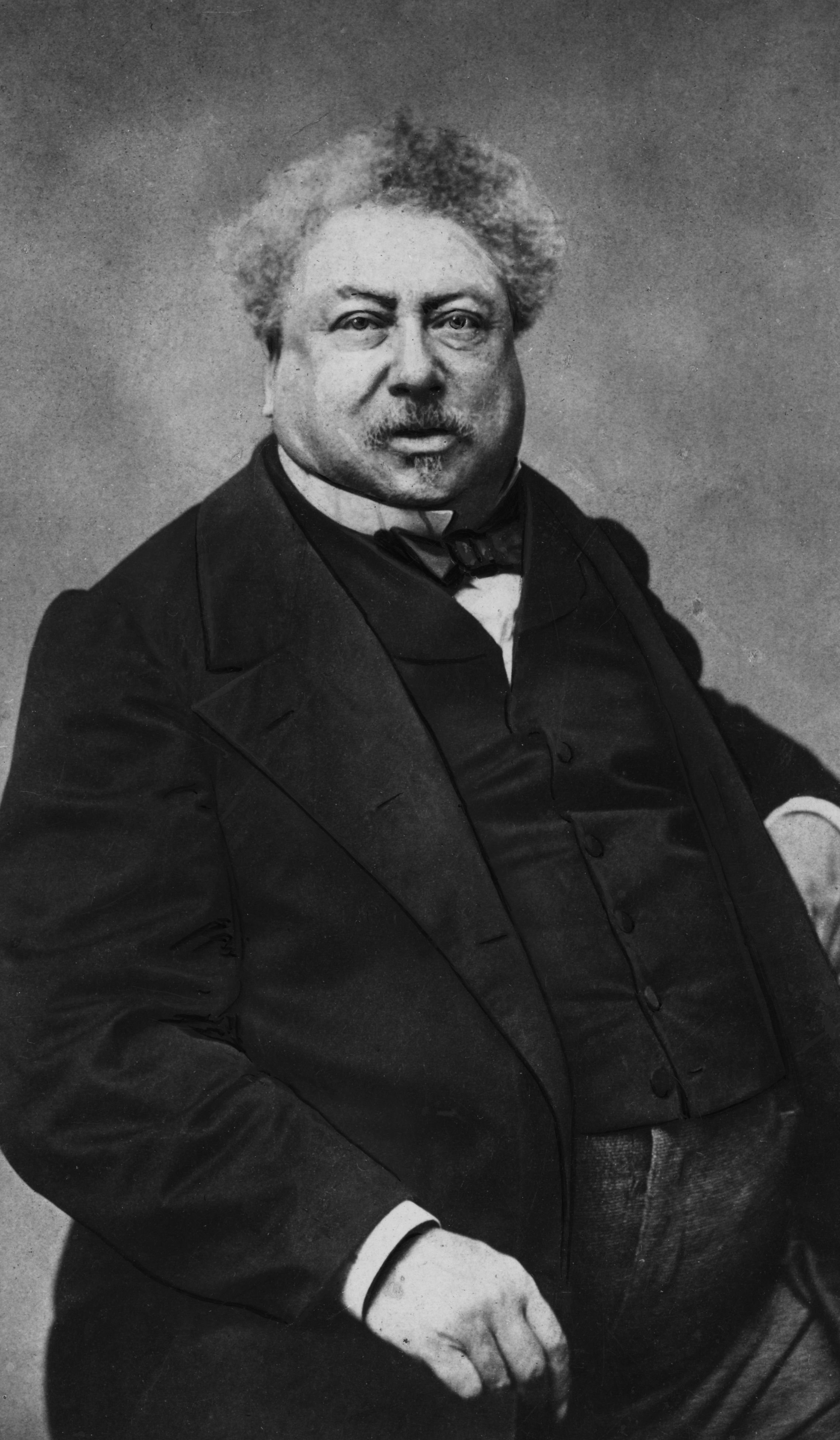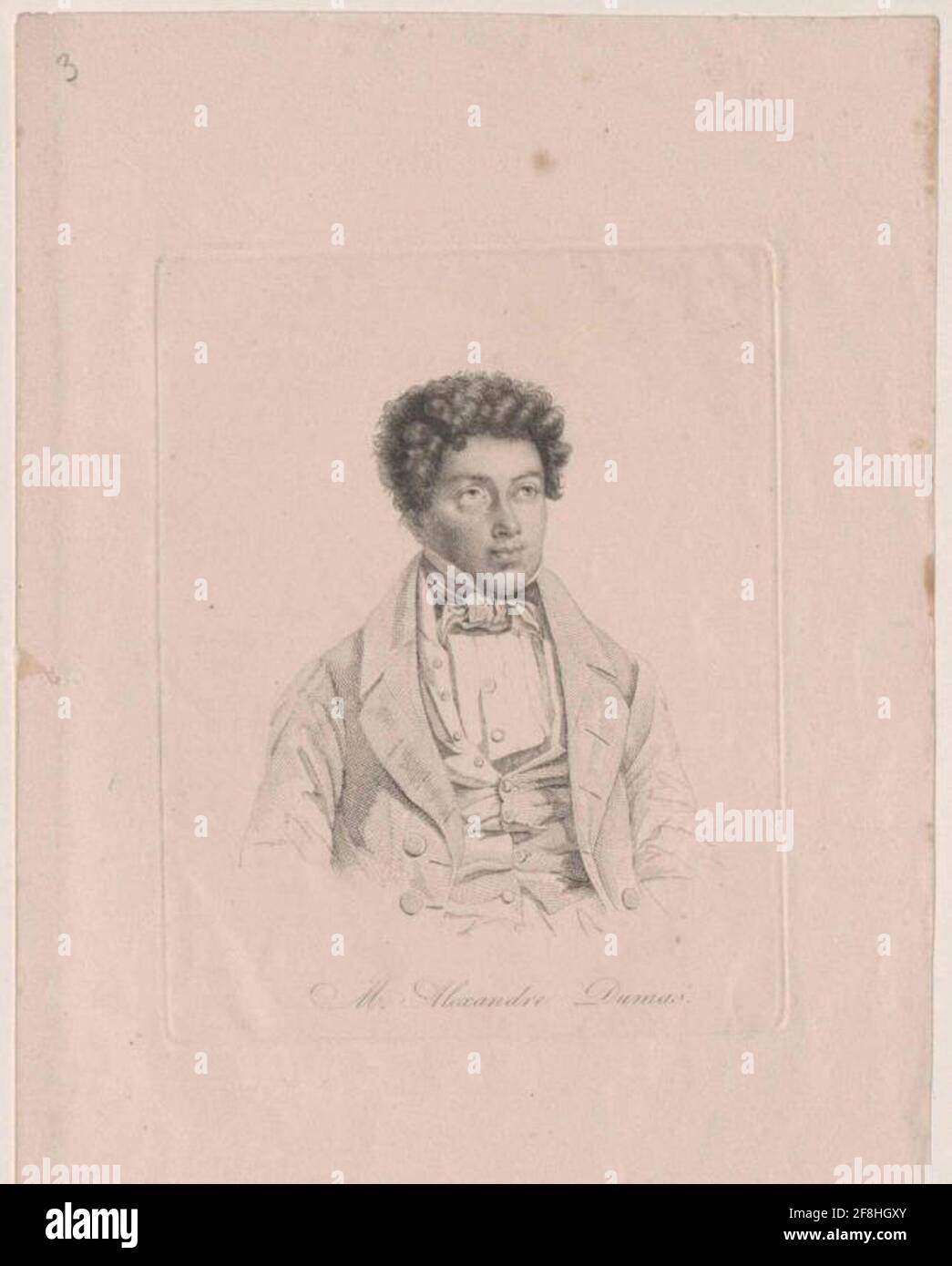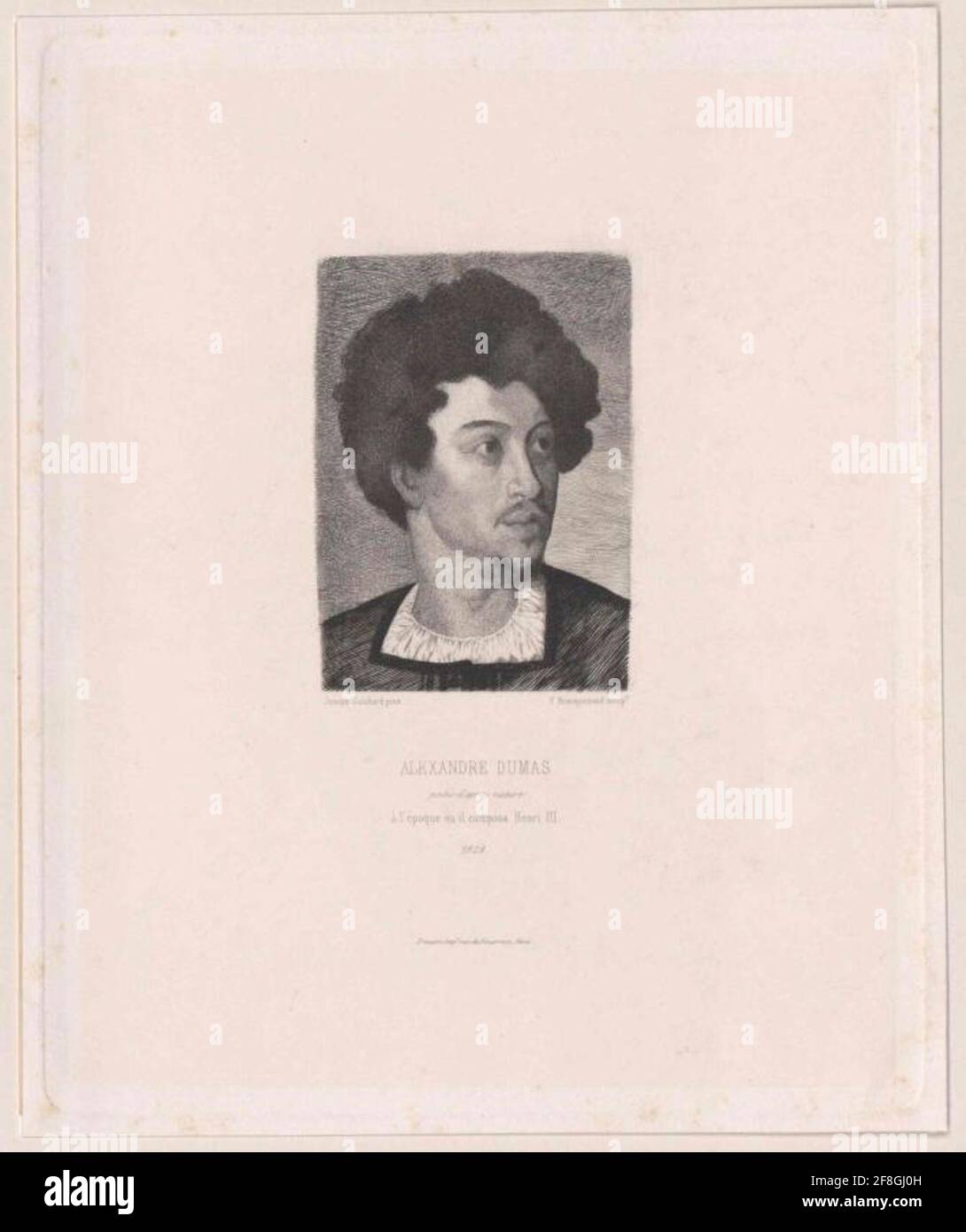Is Alexander Dumas Black? Unraveling A Literary Giant's Heritage
People often wonder about the real lives of famous authors, and one question that frequently pops up about Alexandre Dumas, the celebrated writer behind classics like The Three Musketeers and The Count of Monte Cristo, is his racial background. This query, you know, has sparked many conversations over the years, showing a deep curiosity about the personal stories that shaped such influential figures in literature.
For a long time, the public image of Dumas didn't always reflect his full story. His amazing tales of adventure and daring heroes are quite famous, but the details of his family history, especially his mixed heritage, are perhaps less known to some readers. It's an important part of who he was, really, and it helps us understand the man behind the beloved books.
So, we're going to explore the lineage of this literary titan, looking at the facts that clarify his family roots and address the question of whether Alexandre Dumas was Black. We'll look at his ancestry, which, you know, played a part in his life experiences and maybe even influenced his creative output in subtle ways.
Table of Contents
- Alexandre Dumas: A Glimpse into His Life
- The Question: Is Alexander Dumas Black?
- His Ancestry and Identity
- Addressing Common Queries About Alexandre Dumas
- The Enduring Legacy of Alexandre Dumas
Alexandre Dumas: A Glimpse into His Life
Alexandre Dumas, often called Dumas père to distinguish him from his son, was a very prolific French writer. He wrote so many plays and adventure stories that, you know, are still popular today. His work has been translated into almost every language, and many of his novels have been made into films, which is pretty cool.
His stories often feature brave characters, exciting duels, and grand adventures. He really had a knack for creating worlds that captured people's imaginations. It's almost as if he could see these grand scenes playing out, then just put them onto paper for everyone to enjoy.
Personal Details & Bio Data
| Detail | Information |
|---|---|
| Full Name | Dumas Davy de la Pailleterie |
| Born | July 24, 1802, Villers-Cotterêts, France |
| Died | December 5, 1870, Puys, France |
| Nationality | French |
| Occupation | Novelist, Playwright |
| Notable Works | The Three Musketeers, The Count of Monte Cristo, The Man in the Iron Mask |
| Parents | Thomas-Alexandre Dumas (father), Marie-Louise Élisabeth Labouret (mother) |
Early Life and Family Background
Alexandre Dumas had a rather interesting family background, which, you know, is key to understanding the question of his heritage. His father, Thomas-Alexandre Dumas, was a famous general during the French Revolutionary Wars. This General Dumas was quite a figure, a very brave soldier, and a hero in his own right, actually.
General Thomas-Alexandre Dumas's mother was a Black enslaved woman named Marie-Cessette Dumas. She lived in the French colony of Saint-Domingue, which we now call Haiti. His father was a French nobleman, Marquis Alexandre Antoine Davy de la Pailleterie. So, you see, General Dumas was of mixed race, being half Black and half white.
This means that Alexandre Dumas, the writer, was the grandson of Marie-Cessette Dumas. He was, therefore, one-quarter Black. This lineage, pretty much, is the direct answer to the common question about his racial identity. It's a clear line from his grandmother in the Caribbean to him in France.
His father, General Dumas, was born in Saint-Domingue, and then brought to France as a young boy. He rose through the ranks of the French army, which was, you know, quite an achievement for someone of his background during that time. His military career was, in a way, very remarkable.
The Question: Is Alexander Dumas Black?
So, to address the core question directly: yes, Alexandre Dumas had African ancestry. He was of mixed heritage, with his paternal grandmother being a Black woman from Haiti. This makes him, basically, a person of color, even if his appearance might have been lighter than some might expect.
The name "Alexander" itself, which both his father and he carried, is of Greek origin and means "defender of men." It's interesting to think about how this name, you know, might have suited his father, General Thomas-Alexandre Dumas, who was a literal defender of men on the battlefield. Our own company, for instance, has been a leading promotional products manufacturer since 1943, creating custom promotional products for any budget, and we understand how names and titles carry meaning and impact.
The general's story is, in fact, a very compelling one. He faced some prejudice, even as a high-ranking officer, but he was, you know, undeniably a man of great courage and ability. His son, the writer, inherited some of that spirit, perhaps, which helped him create such vibrant and adventurous characters.
The question of his race often comes up because, for many years, his heritage wasn't widely discussed or emphasized in popular culture. People just knew him as a famous French author. But, you know, as we learn more about history and identity, these details become more important to many readers.
It's worth noting that the way race was perceived and categorized in 19th-century France was, in some respects, different from how it might be viewed today. However, the fact of his African ancestry remains, and it's a significant part of his personal story.
His Ancestry and Identity
Understanding Dumas's full ancestry helps us appreciate the complexity of his identity. His family tree, you know, stretches across continents and cultures, bringing together different threads of human experience. This rich background is, arguably, part of what made him such a unique voice in literature.
His father's journey from a Caribbean island to becoming a celebrated general in France is a testament to resilience. This history, basically, shaped the environment in which the young Alexandre Dumas grew up, giving him a unique perspective on life and society, I mean, you know, in a way.
Tracing His Haitian Roots
Marie-Cessette Dumas, Alexandre's paternal grandmother, was born in Saint-Domingue. She was an enslaved woman, and her relationship with the Marquis Davy de la Pailleterie led to the birth of Thomas-Alexandre. This connection to Saint-Domingue, which later became the independent nation of Haiti, is a very important part of the Dumas family story.
The history of Saint-Domingue itself is, you know, quite dramatic, marked by the Haitian Revolution, a pivotal moment in global history. While Alexandre Dumas himself did not live in Haiti, his roots there are undeniable and connect him to a powerful narrative of freedom and resistance.
His grandmother's life, though not extensively documented, represents the experiences of countless individuals during that time. Knowing this background adds a layer of depth to our appreciation of Alexandre Dumas's own journey and achievements, you know, as a writer.
Impact on His Life and Works
Did his mixed heritage directly influence his writing? That's a question many people ask. While Dumas rarely wrote explicitly about race or his own background in his novels, some scholars suggest that themes of justice, freedom, and the outsider's perspective might, in a way, resonate with his personal history.
For example, characters who are unjustly imprisoned or who fight against societal norms, like Edmond Dantès in The Count of Monte Cristo, could be seen through this lens. It's not a direct correlation, you know, but it's a possible interpretation of the underlying currents in his stories.
It's also known that Dumas faced some forms of prejudice in his life, particularly as he grew older and his fame increased. Some critics, you know, would try to diminish his achievements by pointing to his ancestry. However, he largely dismissed these attacks, focusing on his work and his art.
His ability to rise to such prominence in French society, despite his background, speaks volumes about his talent and determination. He basically just kept writing amazing stories, and that, you know, spoke for itself.
Addressing Common Queries About Alexandre Dumas
Given the historical context and the ongoing interest in identity, it's natural for people to have questions about Alexandre Dumas's heritage. Let's look at some of the common things people ask, you know, to make things clearer.
People Also Ask
Was Alexandre Dumas a person of color?
Yes, Alexandre Dumas was a person of color. His paternal grandmother, Marie-Cessette Dumas, was a Black woman from Saint-Domingue (Haiti). This means he had African ancestry, making him one-quarter Black, which is, you know, a pretty clear fact about his background.
What was Alexandre Dumas's race?
Alexandre Dumas was of mixed race. He was the grandson of a Black enslaved woman and a white French nobleman. His racial background was, therefore, a blend of African and European heritage. This mixed identity is, basically, what his lineage shows.
Did Alexandre Dumas experience racism?
While Dumas achieved great success and popularity, he did encounter prejudice and racist remarks throughout his life, especially from some literary critics and political opponents. These attacks often targeted his African ancestry in an attempt to undermine his work or his standing. He, you know, usually handled these slights with dignity, or just ignored them, actually.
The Enduring Legacy of Alexandre Dumas
Alexandre Dumas's literary contributions are, you know, truly immense. His novels continue to be read and enjoyed by millions around the globe, showing just how timeless his storytelling really is. He created characters and plots that resonate with people across different cultures and generations.
His stories are, in a way, about universal human experiences: loyalty, betrayal, revenge, love, and the pursuit of justice. These themes are, pretty much, always relevant, which is why his books never seem to go out of style. He had a gift for crafting narratives that really stick with you, I mean, you know.
The ongoing interest in his life, including his heritage, simply adds another layer to his incredible story. It shows that people are curious not just about the words on the page, but also about the person who wrote them and the world they lived in. This curiosity, you know, keeps his memory alive.
Just like Alexander the Great, the king of the ancient Greek kingdom of Macedon who created a vast empire, our Alexandre Dumas created literary worlds that captivate us still today. His influence on literature is, you know, quite profound, and his works continue to inspire new generations of writers and readers.
The discussions about his racial identity are, in some respects, part of a broader conversation about history, representation, and how we understand the lives of influential figures from the past. It's a way of looking at the full picture, you know, and appreciating all aspects of a person's life.
You can learn more about Alexandre Dumas's amazing works on our site, and also explore other fascinating literary figures from history.
So, to recap, Alexandre Dumas did have African ancestry through his grandmother, Marie-Cessette Dumas, making him a person of mixed race. This fact is, basically, an important part of his identity and adds another layer to his incredible story as one of the world's most beloved writers.
- Billionaire Shopping Mall Developer Rick Caruso Lists Malibu Estate For 40 Million
- Blake Griffin Agrees To A Deal With Brooklyn Nets

Alexander Dumas Biography, Alexander Dumas's Famous Quotes - Sualci

Dumas, Alexander Stock Photo - Alamy

Dumas, Alexander Stock Photo - Alamy